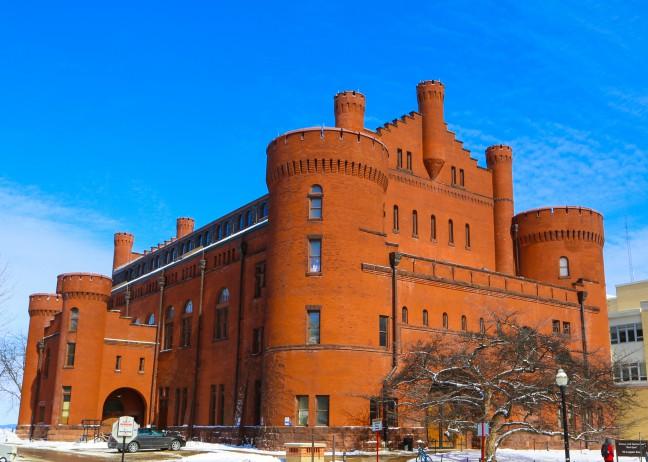“If I don’t stick with my people, I lose part of myself,” University of Wisconsin student Houa Lee said.
UW Asian American students, including Lee, gathered to explore how to come together as a community by openly sharing stories finding their own identities and recognizing challenges within the community in an educational workshop Tuesday night.
Lee said staying close to fellow Asian Americans is how she resists a flawed dominant narrative in which many people don’t know what it means to be Hmong, making it difficult to recognize different forms of oppression.
Discussion among the students, whose ethnicities included Hmong, Chinese, Japanese, Filipino and Korean, addressed issues within the community such as reconciling how to identify with their cultures at home and away at college.
Daiki Yanagwa, a UW sophomore and main organizer for the event, said one of the biggest challenges in addressing issues within the Asian-American community is its diversity. He said despite some dissonance, members are working to improve their sense of community.
Carmen Yang, president of the Asian American Student Union, said one of the group’s main motivations for holding the event was to address the lack of interconnectivity within the Asian community.
“Student orgs on this campus are really seen as being exclusive and sticking to themselves and sticking to their own people,” Yang said. “We just wanted to address that problem and ask why that is.”
The students brought their personal stories to the table to discuss a diverse set of issues, from not feeling like they truly belong in a single country, to being grouped under a single label despite their cultural differences, to being taught a white-dominated history.
Nicole Ki said she joined AASU to get to know people in the Asian community in a more formal way. Ki, a UW sophomore, said she wanted to help facilitate educational workshops because she found it hard to locate spaces intentionally made for Asian Americans on a largely white campus.
In full disclosure, Ki is also a reporter for The Badger Herald.
Ki said Asians have to work against internalizing stereotypes about being submissive.
“I wanted to mobilize a collective voice and to let people know on campus, even though Asians are a huge minority on campus, that they do have a voice and that they can speak and that their issues are not invalidated,” Ki said.
Ki worked with Yanagwa and Hoyon Mephokee, an AASU senior adviser, to host the workshop and said they hoped to encourage a sense of community with events like this.
As a member of the Hmong community, Pachia Yang said challenges to understanding her culture stem from its history. The Hmong community only got a written language in the past century, after relying more on oral history. Hmong people also do not come from a single country, and CC Vang, a UW School of Education undergraduate assistant, said it’s challenging to not have a home, a country to point to on a map.
Students said another common issue was reconciling their beliefs, especially concerning social justice for other minorities, with deeply rooted prejudices. Ki said some Asians and, particularly the elderly, maintain negatives ideas about women, black people, LGBTQ+ people and even Asian people from other countries.
Gretchen Carvajal said she has become involved in the community in an individualized way, understanding the historical context of the prejudice but still calling out trifling comments demeaning other people.
Though it can be hard to bring up these issues when compared to the injustices other minorities have experienced, Caravajal said she is excited to do social justice work for the Asian-American community.
Carvajal said she found it difficult to become immersed in the Asian-American community on campus than the black community because Asian Americans are more geared toward socialization and bringing people together rather than mobilizing and actively working for social justice. But she said she has come to realize it is a form of activism to realize or affirm one’s place in the community.
“It’s about time that more folks get involved and get more political, especially in the Asian-American community, so I wanted to help with that,” Carvajal said.
Yufei Zhu said as an international student, she appreciated seeing other people’s perspectives in such a comfortable environment. Justine Kao, a UW junior, said hearing about other students’ experiences on campus was in some ways relatable but also taught her something new.


